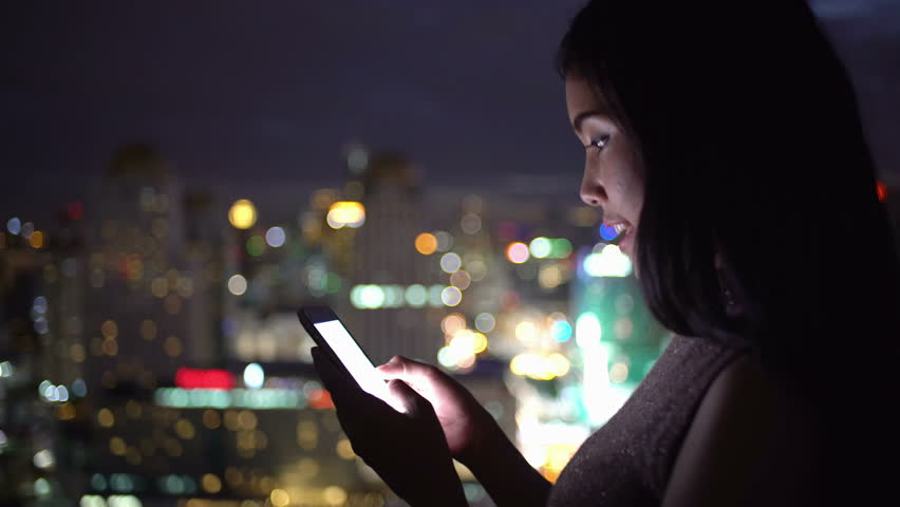Harvard researchers found that women who are usually exposed to lights in their night shift works, or just when they’re sleeping, are more likely to develop breast cancer. The more light a woman gets at night, the higher the risks for developing the disease.
According to experts, women who work night shifts have at least 14 percent higher chances of getting breast cancer, especially those who have quit smoking and those who are in pre-menstrual stages.

The research published in the journal Environmental Health Perspectives showed that artificial illumination affects melatonin, an essential hormone that helps the body to stop producing tumors and carcinogens cells.
Researchers studied data from 110,000 women
According to a study published in the journal Environmental Health Perspectives, scientists began their investigation a long time ago. Similar studies had already demonstrated that the human body produces most of its melatonin when it’s sleeping at night.
Researchers analyzed around 110,000 women enrolled in the Nurses’ Health Study II between the years of 1989 and 2013. To support the study, they brought in night satellite images of Earth – exactly where the nurses lived -, their socioeconomic and wealth status, and the kind of jobs they performed.
The data revealed a difference in the development of melatonin between the women who slept the right amount of time without receiving any artificial light and those who were usually exposed to outdoor illumination when working or just sleeping. Among the participants, 3,549 breast cancer incidences were recorded.
The study concluded that women who spend more time exposed to artificial outdoor illumination are more likely to develop breast cancer by at least 14 percent. All women who work night shifts are at risk of developing the disease, but the probability can vary depending on the amount of light each woman receives.
It’s was also determined that the chances can be even higher in women passing through pre-menstrual stages, and in those who recently stopped smoking or are currently doing it. The reasons are still unclear.
“In our modern industrialized society, artificial lighting is nearly ubiquitous. Our results suggest that this widespread exposure to outdoor lights during night time hours could represent a novel risk factor for breast cancer,” said lead author Peter James, Assistant Professor at Harvard University.
Melatonin, an essential hormone for stopping the development of tumors
Melatonin is a hormone produced by the pineal gland – a small gland in the brain – that controls the internal clock of sleeping and waking hours. It also governs sleepiness and alertness.
Usually, the body starts producing melatonin about the mid-to-late evening, and always reaches the higher peak when the person is sleeping at night. In early hours of the morning, even if the individual is still sleeping, the production of melatonin eventually stops, and the cycle starts again the following day.

Light affects the amount of melatonin the human body produces. For example: in the shorter days of the winter months, the production of melatonin tends to change. This can cause symptoms of the seasonal affective disorder (SAD), or winter depression.
This study found that this hormone can suppress the growth of breast cancer tumors. But when the sleeping process is affected somehow, it disturbs the body’s melatonin production, thus representing a rise in risks and chances for getting the disease. Still, more studies have to be made to confirm this information. If a person can’t sleep enough, the best way to treat the deficiency of melatonin is through a proper diet.
Also, there are supplements for helping the body melatonin’s production, but it can deviate to side effects. Usually, melatonin supplements are safe when a person takes small doses in a short period of time. They can be bought in pharmacies without a prescription, but pregnant women should ask their doctors before doing so.
Besides of increased risks for breast cancer in women, the lack of melatonin can lead any person to feel sleepiness, headaches, low body temperatures, lack of dreams, small changes in blood pressure and morning grogginess.
Women who work night shifts may be losing fertility
In a different study, Harvard University researchers followed 500 women who were seeking fertility treatment at Massachusetts General Hospital. They found in February that women whose jobs involved working late at night, or include heavy lifting, were less fertile.
They concluded that women who work day shift produced an average of 11.2 eggs per session, but those working night shift produced just 8.7 percent.
“Our study suggests that women who are planning pregnancy should be aware of the potential negative impacts that non-day shift and heavy lifting could have on their reproductive health,” said lead author Dr Lidia Mínguez-Alarcón.
Source: Environmental Health Perspectives
